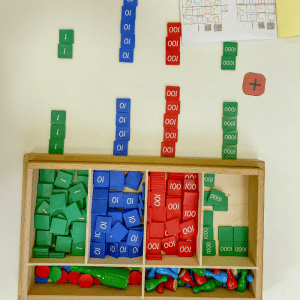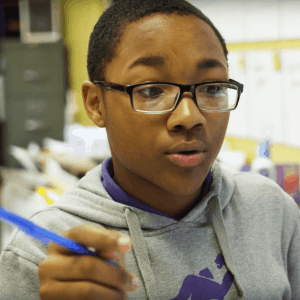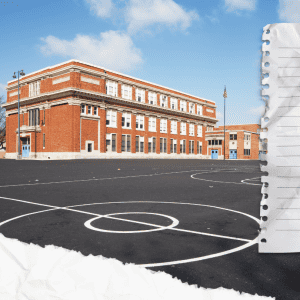
How Districts Can Use Curricula to Cultivate Excellence in Math
08/14/2023

 The future is changing rapidly, and it also promises students new opportunities not seen by past generations. Climate change, artificial intelligence, and the threat of future pandemics will create demand for deep knowledge in math and science. So are today’s students ready?
The future is changing rapidly, and it also promises students new opportunities not seen by past generations. Climate change, artificial intelligence, and the threat of future pandemics will create demand for deep knowledge in math and science. So are today’s students ready?
The most recent report from the National Assessment of Educational Progress (NAEP) revealed a historic decline in math proficiency. Compounding this issue is the fact that some schools do not use high-quality instructional materials (HQIM) that align with state standards, placing educators in a challenging position and ultimately impacting student achievement.
There’s also a clear equity facet. Students from marginalized backgrounds often lack access to math instruction that is relevant to their lived experiences. Educators, communities, and major education actors agree this needs to change, with the Gates Foundation making significant investments in K-12 math over the next ten years. So what can school systems do, and what is already going well?
Bright Spot: Los Angeles Unified School District
Our partnership with the Los Angeles Unified School District (LAUSD) offers some answers. Recognizing traditional approaches to teaching math and supporting teachers in their professional growth were not yielding the desired outcomes, the district moved to adopt a robust math curriculum and help students develop deeper math knowledge.
The Los Angeles Unified School District (LAUSD) is working with Leading Educators to demystify mathematics through ongoing professional learning tied to the Illustrative Mathematics curriculum. I spoke with George Werres, Director of Content for the partnership, about the entry points for systematic instructional improvement in mathematics. We delve into addressing math mindsets, cultivating student-led learning, and building buy-in from the community.
#1: Teacher and student mindsets about math matter
There has been much written about how many people say they aren’t “math people,” but virtually no one would say the same about literacy. Teachers play a pivotal role in helping students develop a strong mathematical identity and belief in their own abilities. It requires teachers to recognize the potential in all students, regardless of their starting point, and to foster a belief that every student can meet grade-level expectations.
Most importantly, the way students see themselves in mathematics directly relates to their future educational and career aspirations.
We at Leading Educators have addressed this need in our work with LAUSD by helping teachers shift from the traditional “I do, we do, you do” approach to a more engaging “You do, we do, I do” model of math instruction that enables students to grapple with real-world scenarios, not just abstract problems that are devoid of context, and collaborate with their peers to find solutions. This challenges them to actively participate in their own learning, building their confidence and problem-solving skills.
By putting students at the center of the learning experience and encouraging them to take ownership of their mathematical journey, we can unlock their potential and open doors to a future filled with educational and career opportunities.”
#2: Students thrive when they can lead the learning and share their thinking
While engaging in math activities together can be exciting and fulfilling, it is more than just having fun; it actually shapes how we see ourselves as math learners. When we encourage students to share their ideas and work together, it’s not only about gaining knowledge but also about growing together as a community.
We also consider school leaders and teachers a part of the learning community. To support math teaching and learning, we have regular coaching sessions and observations with school leaders and teachers. Together, we focus on important topics in the curriculum, so teachers can understand it better and use it effectively in their teaching.
One of our priority focus areas with LAUSD is building mathematical discourse and supporting students in communicating their mathematical ideas. When teachers use instructional routines like Notice and Wonder or Which One Doesn’t Belong, students build skills to form a mathematical argument and justify their reasoning. This allows them to lead the math discussions and think critically about multiple forms of reasoning.
#3: Expanding opportunity requires community and a common vision
When students see themselves as mathematicians, it elevates their self-perception and fosters confidence. But it doesn’t stop at the classroom door. George says we also need to involve families and communities in the learning process.
When families and communities actively participate, students feel a stronger connection to math and its real-world applications. It makes math more meaningful and motivates them to explore and excel.”
School leaders can play a crucial role by fostering effective communication about instructional goals and ways families can support students. Building strong partnerships creates a collaborative and supportive learning ecosystem that benefits everyone involved.
Reflect
We all have opportunities to make a real difference in the lives of our students. Leading Educators is here to support you every step of the way.
As you reflect on your next steps to cultivate excellence in math, consider these questions:
- How do your students, especially those from marginalized backgrounds, currently see their math abilities? What can you do to foster productive mathematical identity formation?
- How can you create classrooms where math comes alive, where students actively engage, share their ideas, and collaborate with their peers? How can you make sure that math not only becomes enjoyable but also challenges students to meet and surpass grade-level expectations?
- How can you ensure that all students feel seen, valued, and included in the learning process? How can you diversify the perspectives and experiences reflected in our district or school’s math lessons?
- How can you provide personalized support that matches the unique needs and culture of each school?
Take Your Next Step
Are you looking for support with launching a new high-quality curriculum or designing a professional learning strategy? Send us a note to connect with our Partnerships team and learn how we can help.







